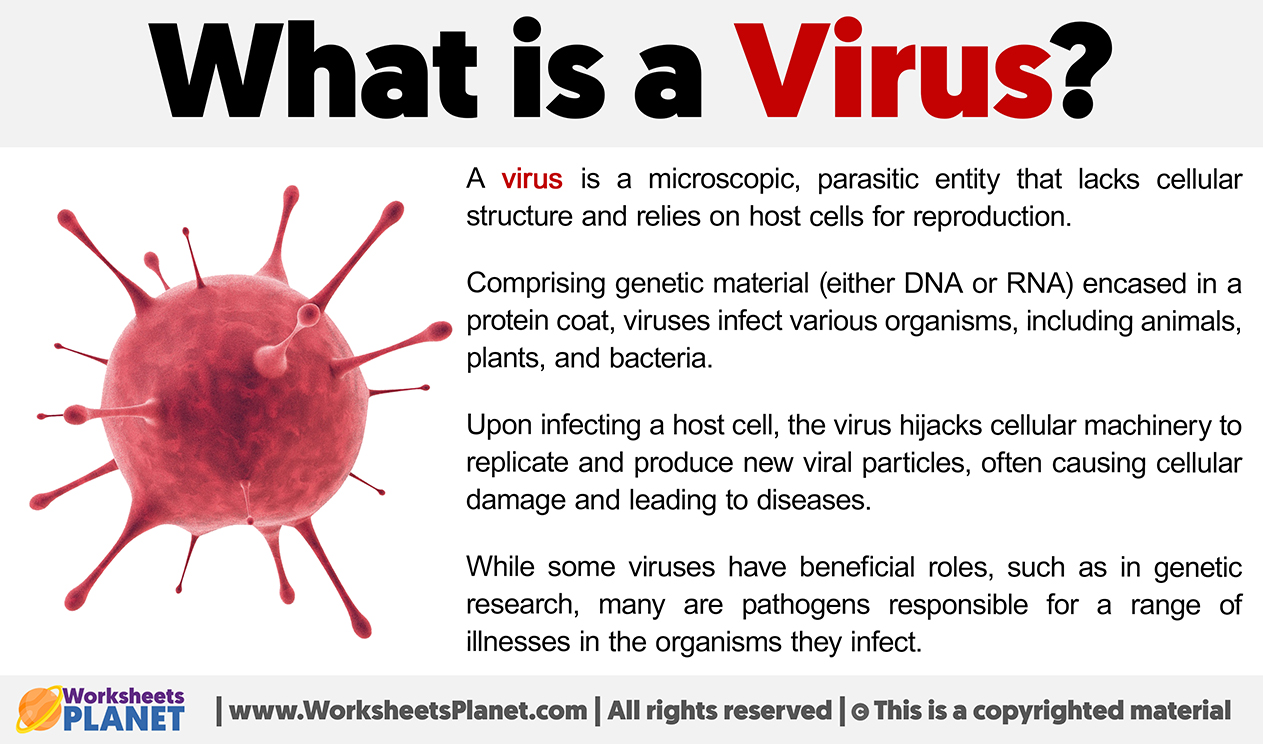A virus is a microscopic, parasitic entity that lacks cellular structure and relies on host cells for reproduction. Comprising genetic material (either DNA or RNA) encased in a protein coat, viruses infect various organisms, including animals, plants, and bacteria.
Upon infecting a host cell, the virus hijacks cellular machinery to replicate and produce new viral particles, often causing cellular damage and leading to diseases.
While some viruses have beneficial roles, such as in genetic research, many are pathogens responsible for a range of illnesses in the organisms they infect.


